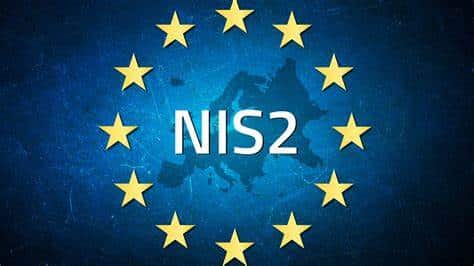
In today’s interconnected world, where technology powers the engines of industry and commerce, the need for robust cybersecurity has never been greater. Recognizing this imperative, the European Union is poised to introduce stringent cybersecurity regulations through the NIS2 directive. These regulations, slated to become effective in the coming years, are set to redefine the way companies in critical sectors protect themselves against cyber threats.
The NIS2 Directive: An Overview
The NIS2 directive, short for the Network and Information Systems Security Directive 2, has set its sights on ensuring the cybersecurity resilience of larger companies operating in various critical sectors. These sectors include energy, transport, healthcare, communications, food production, waste management, and more. Companies within these domains are now required to demonstrate their readiness to tackle cybersecurity incidents or face substantial penalties.
Stiff Penalties for Non-Compliance
The consequences of non-compliance with NIS2 regulations are severe. Companies that fail to prepare for cybersecurity incidents by 2025 could face penalties of up to 2 percent of their annual sales. Moreover, the directive empowers authorities to take action against the leaders of non-compliant organizations, including possible bans from holding positions of responsibility within the company. These penalties also extend to suppliers, emphasizing the comprehensive reach of the regulations.
Cyber Threat Landscape: The Driving Force
To appreciate the urgency of NIS2, it’s crucial to understand the contemporary cyber threat landscape. According to the Cyber Security Agency of the European Union (Enisa), the most prevalent threats faced by companies in recent times include ransomware, malware, and overload attacks. The new regulations aim to make it significantly more challenging for such threats to succeed, enhancing overall cybersecurity resilience.
Affected Sectors and Certification Requirements
NIS2 doesn’t cast a wide net indiscriminately; it focuses on specific sectors. Companies with more than 50 employees and an annual turnover exceeding 10 million euros fall under its purview. Furthermore, organizations that serve as suppliers to NIS2-covered entities must also obtain NIS2 certification.
The highly critical sectors, which include energy, healthcare, communication services, and digital infrastructure services, face the most stringent requirements. The basic critical sectors, such as food production and waste management, must also comply with NIS2 but with somewhat less stringent obligations.
Meeting NIS2 Requirements
To comply with NIS2, organizations must adopt risk management and cybersecurity measures proportionate to their exposure to risks. This entails a range of actions, including:
- Cybersecurity Risk Analysis: Companies must conduct a thorough analysis of their cybersecurity risks.
- Business Continuity and Disaster Recovery: Robust plans for business continuity and disaster recovery are essential.
- Supply Chain Security: Protecting the supply chain from cyber threats is crucial.
- Cyber Hygiene Practices: Enforcing good cyber hygiene practices among employees.
- Encryption and Authentication Solutions: Implementation of encryption and authentication measures.
- Communication Security: Ensuring secure communication channels.
- Cybersecurity Training: Providing cybersecurity training to personnel within the organization.
Reporting Cyber Incidents
NIS2 also mandates that organizations report any events causing significant operational disruption, financial loss, or harm to legal or natural persons to national authorities. This reporting requirement underscores the importance of transparency and collaboration in combating cyber threats.
Penalties for Non-Compliance
The penalties for non-compliance with NIS2 are substantial. Depending on the criticality of the sector, fines can range from 1.4 percent to 2 percent of the annual global turnover of the organization. Moreover, company managers can also face bans from their roles.
The Road Ahead
As the NIS2 directive rolls out, companies must diligently follow legislative changes and prepare for mandatory audits. Seeking assistance from IT system integrators to assess the current state, update regulations, and enhance security solutions will be crucial. The timeline is tight, with national regulations expected to be finalized by January 1, 2024. Companies must apply for registration by June 30, 2024, and ensure compliance with NIS2 by December 31, 2025.
In conclusion, the NIS2 directive represents a significant step in strengthening cybersecurity across critical sectors in the European Union. With the ever-evolving landscape of cyber threats, these regulations are a proactive response to safeguarding essential services, sensitive data, and the overall digital ecosystem. Companies operating in affected sectors must take immediate steps to align with NIS2 requirements and ensure their readiness to confront the evolving challenges of the digital age.
